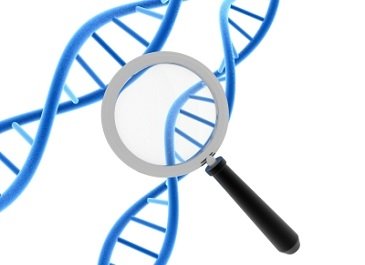Asia's lung cancer burden
08 April 2016 | Analysis | By BioSpectrum Bureau
Asia's burden of lung cancer

Boehringer Ingelheim (BI) has developed Afatinib, a second generation TKI
Lung cancer occurs in two types, small cell lung cancer and the more prevalent non-small scale lung cancer. According to oncology specialists' analysis, 85 percent of the lung cancer patients are diagnosed with non-small scale lung cancer. Profesor Li Zhang, Professor of Medical Oncology, Sun Yat Sen University Cancer Centre, Guangzhou, China, highlights that more than 50 percent of the world's lung cancer incidences occur in Asia of which south east Asia is the most burdened region. Taiwan, South Korea, China, Singapore and Japan has the highest number of non-small scale cell lung cancer (NSCLC) cases in the whole region as almost 20 percent of the cancer deaths are registered from these countries. Moreover, there is an increasing risk in southeast Asia as the predicted growth rate of lung cancer incidence is 22 percent by 2020.
Cracking down on EGFR mutation
In 2011, American Society of Clinical Oncology (ASCO) issued a provisional clinical opinion on using epidermal growth factor receptor (EGFR) testing for treating patients with advanced non-small cell lung cancer. The objective was to help clinicians decide the line of treatment. Cancer.net remarks that some research studies have shown that mutations to the EGFR may predict whether certain types of drugs, called tyrosine kinase inhibitors (TKIs), can help treat lung cancer. TKIs are a type of targeted therapy, a treatment that targets specific genes, proteins, or the tissue environment that help cancer cells grow and survive and some TKIs block EGFR from working, which can help stop or slow tumor growth.
Profesor Li Zhang highlights that around 40 percent of lung cancer patients in Asia are with EGFR mutations as compared to 10-15 percent in Caucasian population and international guidelines recommends EGFR mutation testing at diagnosis level of advanced stage of NSCLC.
Boehringer Ingelheim's Lux Lung Trials
Target Therapy Vs Chemotherapy
Boehringer Ingelheim (BI) has developed Afatinib, a second generation TKI, is a targeted therapy that has shown survival benefit in NSCLC patients with EGFR mutation. The company conducted two randomized clinical study, Lux Lung 3 and Lux Lung 6, to compare targeted therapy with chemotherapy. Lux Lung 3 was designed to study global patient population and Lux lung 6 for Asian patient population in which patients with adenocarcinoma of the lungs with EGFR mutation were given afatinib or chemotherapy. According to the company, the primary endpoint was progression free survival and the study demonstrated that for EGFR mutation afatinib is better than chemotherapy.
The study result indicated significant benefits for patients with EGFR mutation with delay in tumor growth and tumour shrinkage.
Afatinib Vs Geftinib
Professor Keunchil Park, Division of Hematology/oncology, director of Innovative Cancer Medicine Institute (ICMI) at Samsung medical Centre, Sungkyukwan University Scool of Medicine, Seoul, Korea remarks that head to head target agents are better for understanding and comparing different medicines for efficacy and safety prospective. For this purpose, Boehringer Ingelheim is conducting Lux Lung 7 trial, a first global perspective randomized head to head trial to study the potential difference between afatinib and gefitinib. Gefitinib, marketed by Astrazeneca, is the first selective inhibitor of EGFR tyrosine kinase marketed in over 64 countries for NSCLC.
The aim of Lux Lung 7 study is to provide patients and doctors with a better understanding of their treatment options in EGFR mutated NSCLC. In Lux Lung 7 trial, patients with adenocarcinoma of the lung cancer at advance stage with common EGFR mutation with no prior treatment for the disease were administered afatinib (second generation EGFR directed therapy) and geftinib (first generation EGFR directed therapy) on head to head basis. Phase IIb LUX-Lung 7 trial was conducted from December 2011 to August 2013 in 14 countries including China, Hong Kong, Taiwan, Korea and Singapore.
The key progression survival indicated significant reduction in risk of lung cancer progression by 27 percent with afatinib as compared to gefitinib. Afatinib demonstrated superiority to gefitinib in reducing the risk of disease progression and treatment failure in first line treatments of patients with EGFR mutation positive advanced NSCLC.
According to the study, more patients on afatinib versus gefitinib were free of cancer growth 18 and 24 months after the start of treatment.
Afatinib is approved in eight Asian countries including Taiwan, Singapore, Korea, Malaysia, Philippines, Thailand, Hong Kong and Indonesia.
BI's next step
Dr Gerd Stehle, vice president, therapeutic area head medicine oncology, Boehringer Ingelheim, highlights that BI has over 13 compounds in clinical development, that include antibiotics and small molecule medicine.
In July 2015, BI entered into a partnership with Hanmi Pharmaceuticals to develop third generation EGFR targeted therapy in lung cancer. The third generation EGFR TKI is being developed to target only EGFR mutant cells and would spare the cells without EGFR mutations. In December 2015, BI received FDA breakthrough therapy designations in lung cancer for its third generation EGFR TKI, BI 1482694. The company has completed Phase I study in healthy volunteers in Korea and is pursuing the study for phase II trial.












